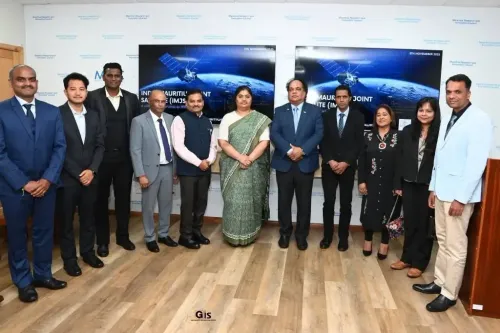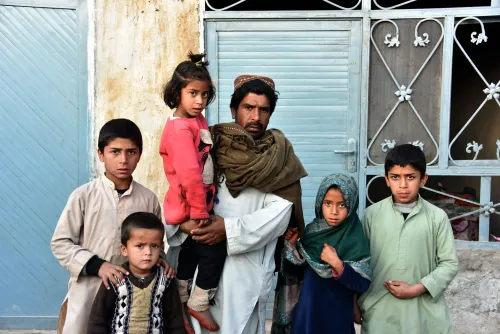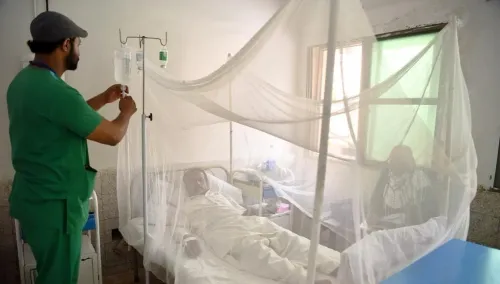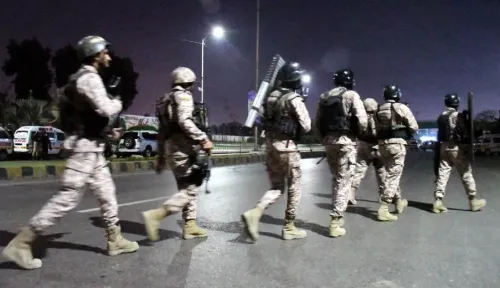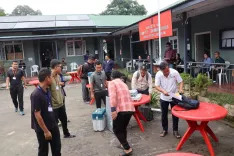Kailash Manasarovar Yatra Set to Resume Soon: MEA
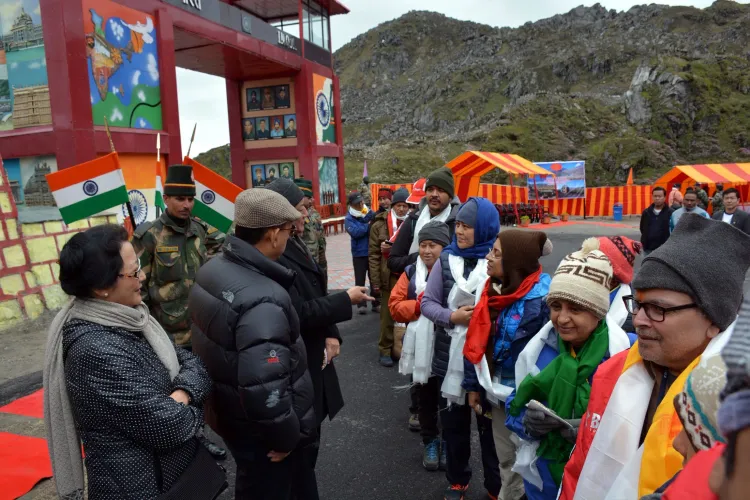
Synopsis
Key Takeaways
- Kailash Manasarovar Yatra may resume soon.
- Discussions between India and China are ongoing.
- Yatra has been suspended since 2020 due to Covid-19.
- Summer 2025 is the targeted restart date.
- Direct air services between India and China are under discussion.
New Delhi, April 17 (NationPress) The ongoing discussions between India and China are progressing towards the finalization of the arrangements for the Kailash Manasarovar Yatra, which may commence shortly, as stated by the Ministry of External Affairs (MEA) on Thursday.
Randhir Jaiswal, spokesperson for the MEA, remarked during a routine media briefing in New Delhi, "We will soon release a notice to the public regarding the Kailash Mansarovar Yatra. There is a strong possibility of its resumption soon."
The Kailash Manasarovar Yatra has been suspended since 2020 due to the Covid-19 pandemic and the subsequent halt of Yatra arrangements by the Chinese authorities. The Indian government traditionally organizes this pilgrimage between June and September via two official routes: Lipulekh Pass in Uttarakhand (since 1981) and Nathu La Pass in Sikkim (since 2015).
After a meeting held under the Foreign Secretary-Vice Foreign Minister framework in January this year, both nations confirmed intentions to restart the Kailash Mansarovar Yatra in the summer of 2025.
The meeting, led by Foreign Secretary Vikram Misri, thoroughly assessed the current state of India-China bilateral relations and concurred on several people-centric initiatives aimed at stabilizing and enhancing relations, as previously agreed upon by Prime Minister Narendra Modi and Chinese President Xi Jinping during their October 2024 meeting in Kazan.
The MEA later announced that the relevant mechanism will further examine the modalities for the Yatra in line with existing agreements.
Furthermore, both nations provisionally agreed to revive direct air services between India and China, with pertinent technical authorities set to negotiate a revised framework soon.
Last month, after official consultations between the Foreign Ministries of India and China in Beijing, it was disclosed that preparations to finalize the modalities for resuming the Kailash Manasarovar Yatra are ongoing.
Gourangalal Das, Joint Secretary (East Asia) at the MEA, held a consultative meeting with Liu Jinsong, Director General of the Department of Asian Affairs at the Chinese Ministry of Foreign Affairs, during which both parties evaluated the actions taken to implement strategic directions and specific steps agreed upon in the January 2025 meeting between the Foreign Secretary and the Chinese Vice Foreign Minister to stabilize and improve ties.
They acknowledged the positive developments in bilateral relations since the meeting of the leaders of India and China in October 2024. During this period, the Foreign Ministers met twice, and the Special Representatives on the India-China boundary issue conducted their 23rd meeting, providing strategic guidance for stabilizing and advancing relations, according to a statement from the MEA.
They also agreed to persist in efforts to enhance and promote people-to-people exchanges, including arrangements for the resumption of direct flights, interactions between the media and think tanks, and the celebration of the 75th anniversary of diplomatic relations. The two sides have progressed further on the modalities to restart the Kailash Manasarovar Yatra in 2025.
The MEA noted that both parties reviewed the planned exchanges and activities for the year, discussing a step-by-step approach to resume dialogue mechanisms aimed at addressing each other's priority interests and concerns, thereby moving relations toward a more stable and predictable trajectory.

